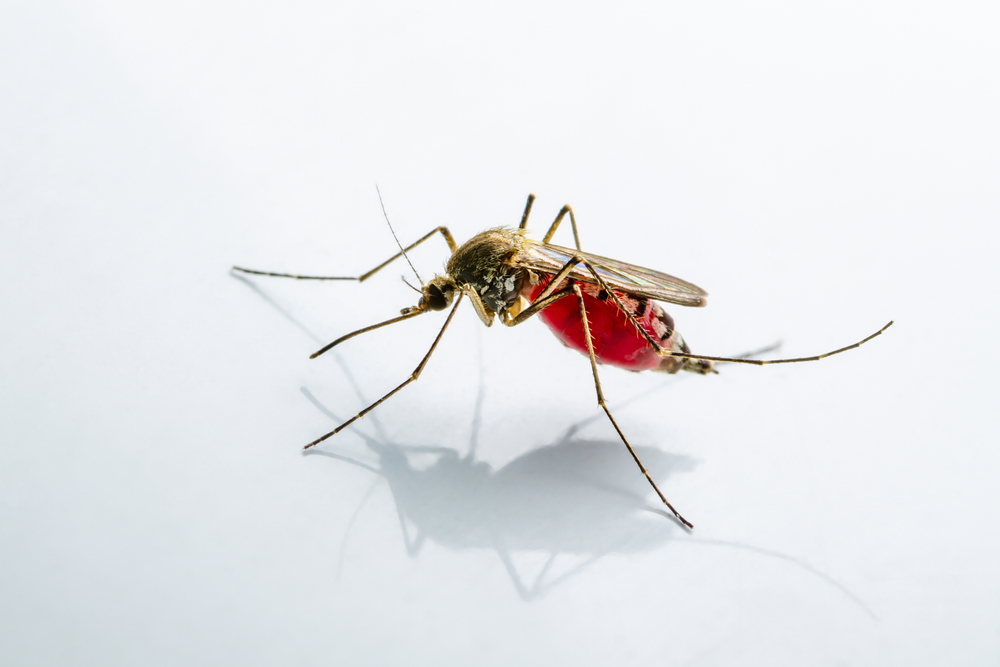Mosquitoes have been considered the deadliest creatures on earth, but the latest developments in gene modification might mean that these bloodsuckers are counting their last days. Is ‘editing nature’ a complex topic, or should we consider this a blessing?
Perhaps my write-up on the Pennyroyal oil being an effective mosquito repellent might become irrelevant soon.
To know more about these latest developments, keep reading!

Out of all the members of the animal kingdom, the mosquito receives an exceptional level of disgust and hatred. While we understand the need and importance of the greatest predators such as sharks, tigers, and bears and anthropomorphize them, mosquitoes will always be seen as worthless and disgusting, an evolutionary accident with a lack of good characteristics. No one ever had a pet mosquito to cuddle. Also, they are the biggest killers of humans, thanks to their ability to spread malaria. To reduce its effects on global deaths, the mosquito population needs to be curbed and soon. One of the possible answers to this is a hard, unsentimental one that we will never even consider for any other living being – complete eradication.
So, is it okay to consider a narrower extinction, such as just the Aedes aegypti, to effectively curb the spread of Zika, dengue, yellow fever, and chikungunya? Now that it is in an achievable and desirable proportion, how exactly can this be done? For the supporters of this notion, the answer comes from cutting-edge gene-editing technology to produce genetically modified (GM) mosquitoes. Scientists can do this gene editing to achieve many different endpoints.
Current Developments in GM Mosquitoes
Oxitec, a British company, has been performing research on developing and releasing genetically altered male A. aegypti mosquitoes with a mutation. These GM mosquitoes, called OX513A are supposedly sterile, and therefore the eggs laid by females will remain unfertilized. Despite the claims that they are sterile, their own studies have shown that these mosquitoes have been able to mate with the local mosquitoes successfully. An upgrade to these mosquitoes is the 2nd generation OX5034 mosquitoes. When the OX5034 mosquitoes mate with local female mosquitoes, they produce female offspring that don’t reach adulthood. Their female offspring will have a protein that will kill them before they become old enough to suck blood. The male offspring, whose diet consists only of nectar, survive and carry on the work. Half the male offspring pass on the mutation to kill female progeny through the generations, while the other half carry a gene that makes them very susceptible to pesticides. The end goal of the GM mosquitoes is to slowly eliminate all the female mosquitoes, thereby causing a complete end of the mosquito reproductive cycle. They call this technology self-limiting because with the subsequent drop of female mosquito populations, these GM mosquitoes will die too, and their mutated genes will be removed from the ecosystem. They have received nearly 4.1 million in funding from the Bill and Melinda Gates Foundation. They have also obtained permission from the US Environment Agency for large-scale production of the OX5034 mosquitoes. In November 2020, the Florida Keys Mosquito Control District (FKMCD) gave them the approval to release 750 million OX5034 GM mosquitoes in the Florida Keys region over a period of two years. They further plan to get federal approval to release them in Texas in 2021, and their successful small-scale experiments will be highly beneficial in helping them get the permit.
Benefits of Mosquito Eradication
An apparent reason for removing these mosquitoes from our lives is the discomfort they give us every day. After all, no one likes to be bitten by mosquitoes constantly and have their blood sucked. When an A. aegypti lands on your skin, she (only females need nutrients from the blood to properly lay eggs) will insert the sharp labium inside her proboscis into your skin and probe in the tissue for a blood vessel. The labium is withdrawn and re-entered, sometimes up to 20 times, till a suitable blood vessel is found. Every time the labium is inserted, it also contains mosquito saliva that numbs the nearby nerves; so, you won’t even know that she’s there. The proboscis has a total of six needles that all have sensors to detect the blood vessel. Once it hits the spot, the labium releases chemicals that prevent the blood from clotting. Then the mosquito holds still and starts sucking the blood while filtering out and releasing the water from the abdomen simultaneously and keeping just the blood cells. In about 90 seconds, she feels full, removes the labium, and flies away. If you are in a tropical or sub-tropical country and out of luck, she will leave you Zika, dengue, or other such deadly diseases as a parting gift through her saliva. The details sound horrible and are bound to cause shudders from any person ever bitten by a mosquito, which is almost everyone.
The benefits of mosquito eradication definitely outweigh the costs, especially while considering the lives it will save. Today, according to the World Mosquito Program, mosquito-caused diseases affect 700 million people every year, and more than one million die from them. They are the only organisms responsible for more human deaths than humans ourselves. These deadly incidents happen in every corner of the world except Antarctica. Zika was the latest discovery, causing microcephaly and associated deformities in unborn children, making them suffer for life, and there is no vaccine against it. This horrific finding brought fresh merit to the difficult question of how to win against them.
According to Andrea Crisanti, Professor of Microbiology at the University of Padua, gene editing is a gamechanger. His research includes similar studies involving the Anopheles gambiae, the major spreader of malaria, and says that genes can be modified with unprecedented precision and flexibility. He thinks this technology can be extended to other mosquito species too. He says that releasing genetically modified mosquitoes can be very advantageous. The mosquito hybrid is chosen only if it is sterile. If the mosquitoes are successful, then there will be a complete eradication soon. If people are concerned about it or ecological problems arise, they can simply release the wild mosquitoes they grow in their labs. Editing nature, he agrees, is a marvelous development.
The concern of damaging the food chain by removing mosquitoes from the scene is not a considerable one. Scientists believe that even though mosquitoes are a delicious meal for many fishes, bats, reptiles, amphibians, and birds, they can easily be replaced by some other organism if eradicated. It is not a keystone species, meaning that its presence does not significantly affect the environment. Its removal will not make a substantial deficit or alteration to the sustenance of other species. Moreover, these scientists are not removing all mosquitoes; hence, mosquito species other than the disease-transmitting ones can fulfill this deficit. These predators do not just rely on the mosquitoes for food and eat other things as well. So, although this might feel like a major issue, nature enthusiasts can rest easy knowing that the outcome of the extinction of one mosquito species is not going to have an effect as disastrous as they imagine.
Concerns Regarding Mosquito Eradication
Removing an entire species always brings ethical controversies. In a way, it is humans ‘playing God’ and removing what is inconvenient for us without adequately assessing the potential repercussions. It is easy to say that the wild species can always be grown in labs and released back if things go haywire. Still, the adaptability of those lab-grown mosquitoes to the future environment and the possible mutations they might accumulate due to constant inbreeding is unknown and understudied. There is also the concern of the change in diets of the predators and the possible outcomes of that. Removing an entire food source for any species is bound to bring nutritional change, and right now, no one knows how that will play out. Therefore, the scientists performing field trials must ensure that this removal of harmful mosquito species must be recuperated with other ecologically compatible and safe non-disease-spreading mosquito species so that the organisms relying on them for food get their meal.
Professor Hilary Ranson, Chair of Medical Entomology (Vector Biology) at the Liverpool School of Tropical Medicine, does not think that people will have many concerns with eradicating mosquitoes. One point she raises is that an enormous number of sterile males must be released to establish such an eradication. However, some measure has to be taken with this goal in mind, and extinction might be an achievable target after all. Crisanti accepts the risks that this extinction may pose,
Quote:
“But on the battlefield of risk-management, you have to accept that any measure has a risk to be balanced against the benefit. There is a risk we all rush, and that shouldn’t be done. We shouldn’t implement this on an emotional basis just because we don’t have anything else. And we shouldn’t take shortcuts in the regulatory process. We don’t want it to backfire when it could be a gamechanger for public health.”
Professor Hilary Ranson, Chair of Medical Entomology (Vector Biology) at the Liverpool School of Tropical Medicine
Some others believe that there are alternatives that are easier and effective. For example, in the 1960s, A. aegypti were removed from most parts of South America by simply spraying containers with kerosene or oil and later with DDT. Since then, the human population has grown massively. It is more difficult to keep a check on mosquito larvae to effectively reduce the mosquito population, especially because of the ever-increasing plastic wastes that can accumulate rainwater and be the perfect breeding ground for these blood-suckers. The World Mosquito Program has found an easier alternative by relying on bacteria to prevent the A. aegypti from spreading diseases. Their process is straightforward – catch mosquitoes from the local area, introduce the bacteria Wolbachia into them, and release them back. Wolbachia is a bacteria that naturally lives in many mosquito species but not the A. aegypti. They found that if A. aegypti have Wolbachia, they cannot spread Zika or any virus when they bite humans. The Wolbachia traps the virus inside the mosquito. These bacteria are not harmful to the mosquito and spread from parents to children by infecting the eggs. The World Mosquito Program has set up trials in 11 countries and works with local communities for this self-sustaining, economic, and safe long-term solution. Such solutions must also be considered before bringing in the big guns with GM mosquitoes. After all, they will prevent possible ecological disbalance and the mosquito generations will thrive without spreading diseases.
No scientist will disagree that the gene-drive technology will be a huge blessing to public health. Yet, we feel a deeper discomfort about the permanent removal of a species that has lived and evolved over several millennia. Author of On Extinction: How We Became Estranged From Nature, Melanie Challenger, says that we should be more instinctual when considering the extinction of a species. She says,
Quote:
“If a part of our brain lights up with caution, that’s a really good instinct, and we should heed it. I don’t think ‘love of nature’ is a good reason not to do it. But I do think there’s something more robust: the sanctity of life. If you start getting cavalier about the existence of a living being, if we start to think it’s okay to eradicate something because it’s a threat to us, we put other ideas about the sanctity of life in question. And because that’s ultimately an artificial, human concept, it needs to be cherished.”
Melanie Challenger
Challenger also accepts that these ethical arguments might be meaningless to someone who has personally suffered the consequences of the diseases these mosquitoes spread. A mother will always choose to protect her unborn baby from developing life-altering, maybe even deadly, diseases than protecting the mosquitoes that cause them. At last, the life-saving potential of these altered mosquitoes triumphs over the ethical concerns a nature-lover might have. Mosquitoes have destroyed lives for so long that they have lost the right to appeal. If the technological and ecological hurdles are overcome, extinction will probably gather support among the masses. Jules Pretty, Professor of Environment and Society at the University of Essex, also talks about conservation in his book The Edge of Extinction. He advocates for the conservation of ecological sanctity with all its species, but he also makes an exception for mosquitoes. He says,
Quote:
“If one has a hierarchy of thoughts, the first would be that it would be desirable if we humans had a lighter impact and that any loss should be deeply worrying. And in most cases, you can stop at that point. But here, you can ask the second question: if there was a loss of a whole species, would there be a human benefit? And in this case, the human benefit is so great that I think you have to say: ‘Okay, I can hold these two thoughts at once.'”
Jules Pretty, Professor of Environment and Society at the University of Essex
Do you agree with the complete eradication of mosquitoes (or just a species of them), or should we leave them be and sleep with a better conscience at night after applying some Pennyroyal oil?
Let us know in the comments below!








Leave A Reply!